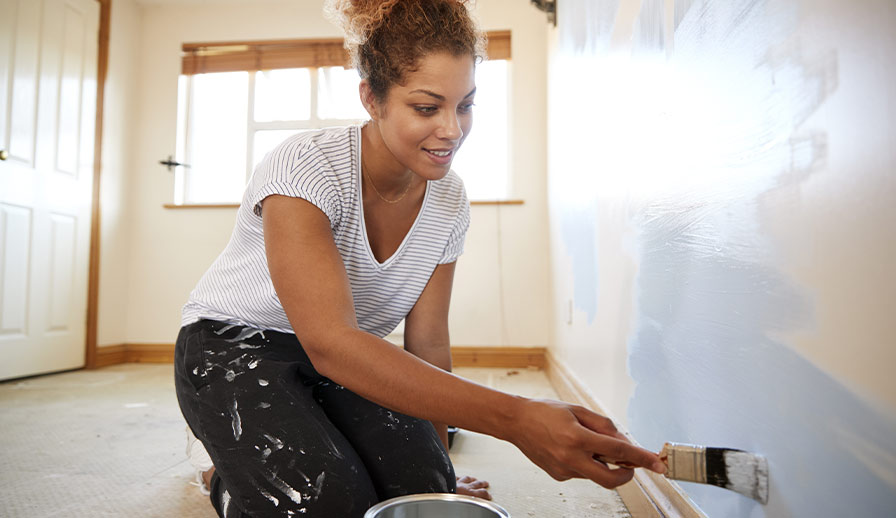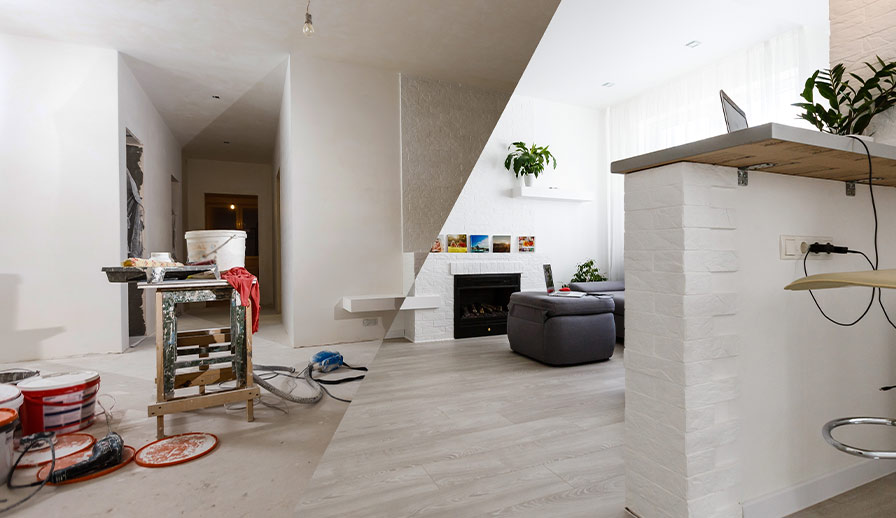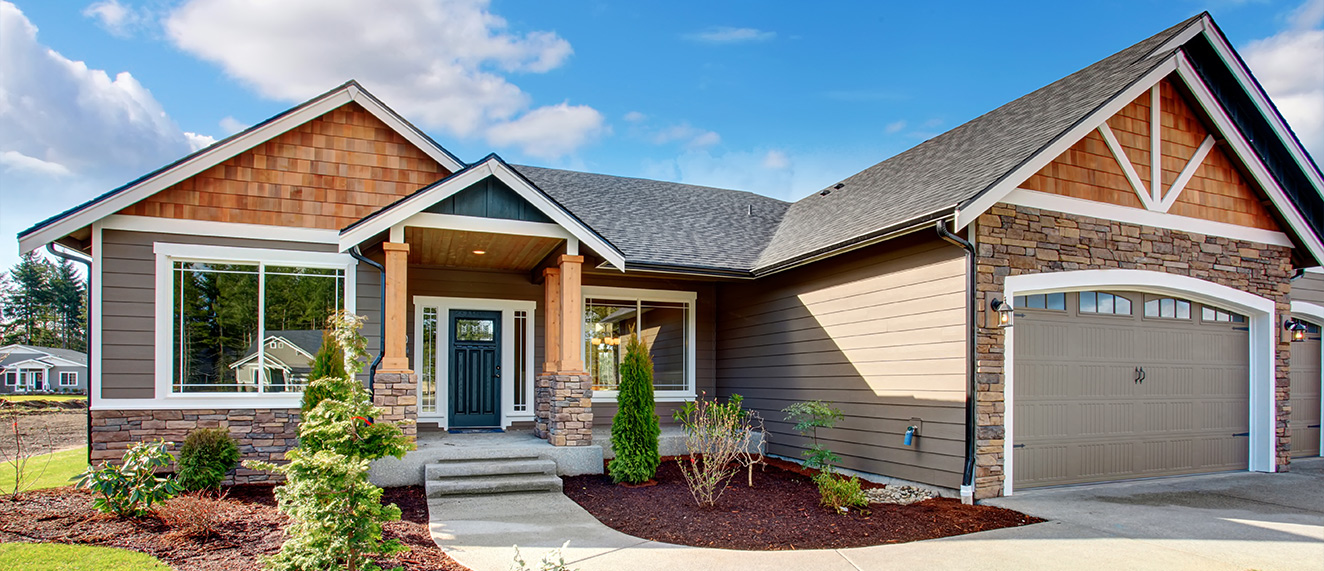Struggling to find content to share on your social media pages?
Stop scrolling through Instagram and Facebook. All you need is REALTOR.ca.
Our consumer lifestyle blog, Living Room, offers content including home improvement, market trends, DIY projects, neighbourhood guides and profiles on unique homes. Living Room publishes exciting new content four times a week (with unique French content for our Francophone fans).
While CREA Café is curated specifically to help your business grow and thrive, Living Room content is perfect to share with your clients.
Owned and operated by the Canadian Real Estate Association (CREA), REALTOR.ca is the No. 1 real estate platform in Canada (Comscore, 2020) with MLS® System listings from across the country.
Share this blog with your clients and followers with the Facebook button below!
You can also follow REALTOR.ca on Twitter, Instagram and Pinterest.
You can read the original blog here.
Buying a flipped home—a property that’s been purchased, renovated, and re-sold by an investor—is all the rage these days, and for good reason! It’s an enticing idea, especially since you get to move into an already-updated home without having to handle the renovations yourself.
Amid the COVID-19 pandemic, the Bank of Canada saw evidence of “a lot more flipping” driving investor activity in some Canadian housing markets, as housing prices across the country rose 25% in February over the previous year.
It’s easy to jump headfirst into a flipped home because everything seems shiny and new. But it’s important to weigh the pros and cons to avoid a potential headache down the road. Here are some things to keep in mind when looking to purchase a flipped home.

1. What’s your budget?
Remember: Investors flip houses to make money. The average investor can make thousands in net profit on a property flip—that’s why they undertake the risk, effort, and financial investment to renovate a house they don’t intend to live in. As a result, you’ll probably end up paying a higher price as a sort of “convenience fee” for someone else taking care of all the renovations. You’re the one benefitting from buying a freshly renovated, move-in ready home, so it can be worth that extra cost. Just be sure the higher price tag for this convenience doesn’t strain your budget!
2. How long did the flip take?
Flipping a house takes time to do it properly, but the longer an investor holds onto the property, spending money on remodeling, the less profit they’re making. This may cause the investor to rush the flip and even cut corners on safety or quality of construction—not great for you, the potential buyer.
It might be a red flag if a house has been flipped in three months or less. However, different projects will take a different amount of time. A full flip will take longer than a kitchen or basement redo. Plus, timelines will vary depending on who’s completing it!
Work with your REALTOR® to find the full history of the house, specifically the date and price of the property’s last sale, to help verify when work began. Additionally, contact your local building department to check if the investor obtained the proper permits and the home is up to code. More on this in a bit…

3. Inspect everything carefully.
A common pitfall experienced by first-time buyers of a flipped house occurs when they don’t inspect closely enough, avoid doing due diligence on the flipping process, and are shy about asking a lot of questions. They’ve become the proud new owners of a home that looks beautiful on the outside but may hide shoddy work on the inside.
A critical step to take once you’ve submitted an offer and secured your financing is to hire a professional home inspector to “kick the tires” of your new home. Learn more about the home inspection process including how to find a professional inspector in your area by visiting the Canadian Association of Home & Property Inspectors. Your REALTOR® can also connect you with a reputable home inspector who knows and serves your neighbourhood.
If you put in a conditional offer, your sale is not final until the inspection is complete. This means if the inspection uncovers any issues, you can go back to the seller to renegotiate the selling price or revoke the offer if the issues are too extreme. If you buy the home without conditions, you’re responsible for resolving any issues that arise during the home inspection, which could end up being pretty pricey if the flippers cut corners. A typical home inspection should take about three hours and can cost anywhere between $300 and $800 depending on the size of the house, but the peace of mind this will afford you is worth every penny.

4. Ask questions about every single thing.
Be sure to accompany the inspector (if possible) during the walk-around of your flipped house and come equipped with more questions than you thought you needed to ask. Some of these questions include:
- Can you provide all the work permits?
- Can you provide the proof of inspection for the electrical work?
- What was structurally changed?
- What was done to the foundation?
- What was done to the wiring?
- Are there signs of mould?
- What was done to the plumbing?
- How was the insulation upgraded?
- Did you touch the roof?
- How did you address insect, water, fire, or other major damage discovered during the project?
You don’t want to be blind-sided if something happens to your new home, so asking these questions is crucial to ensuring you feel comfortable if and when you move in.
A good flip has its benefits
If you do your research, talk to the right people, and are OK with someone else making all the renovation choices, then purchasing a flipped house isn’t a bad option. While it may be a bit more expensive and require diligent inspection, you’ll sit comfortably in your newly remodeled living room knowing you invested in a new home that will stand the test of time.
If you are looking to buy a flipped home, be sure to connect with a REALTOR®. They’ve likely been through this experience before and know what you should be on the lookout for! Their knowledge of homes, inspections, housing markets, and the neighbourhood will be extremely beneficial to helping you make an informed decision.




